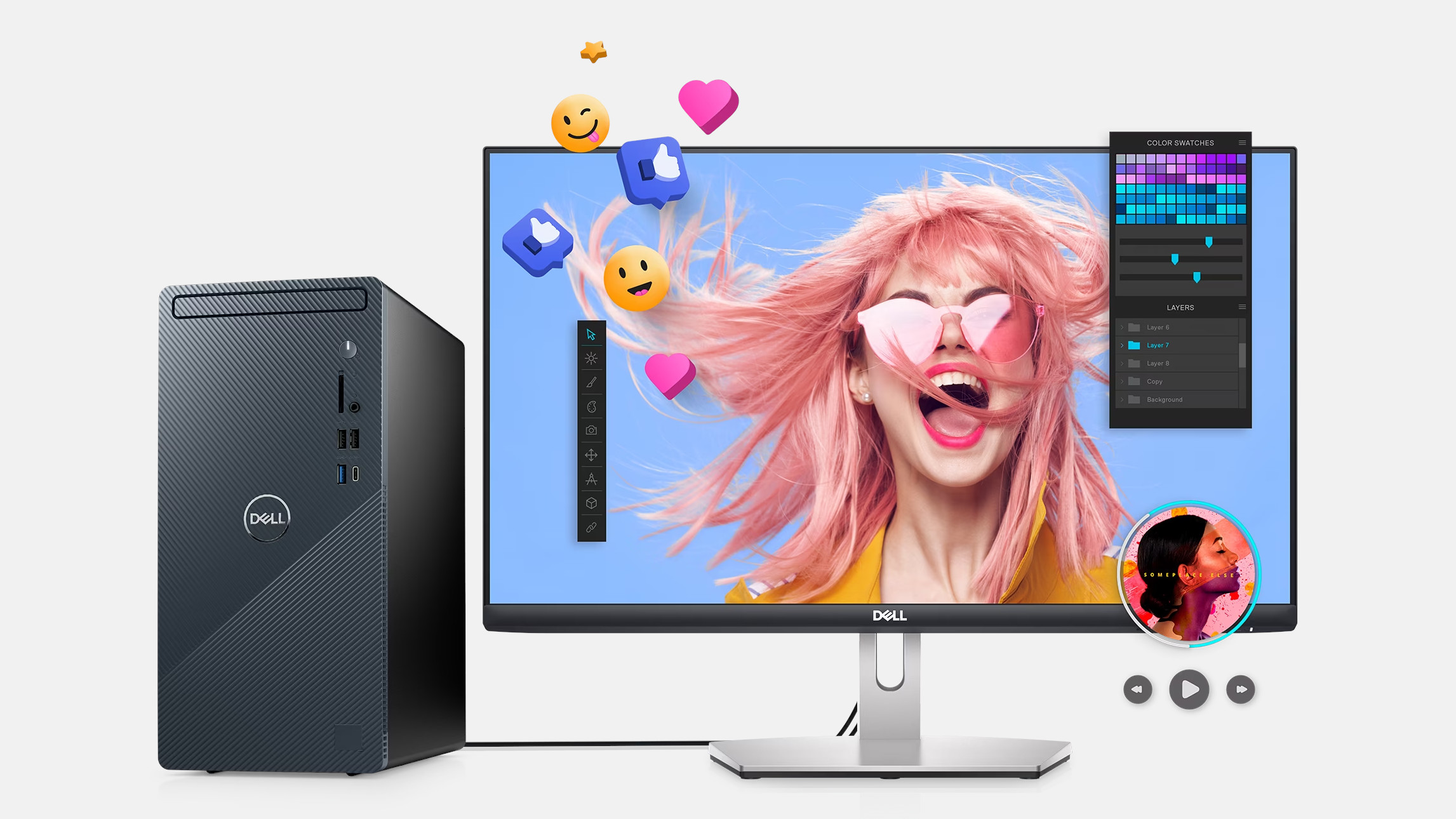Historical decline of desktop PC shipments affects Dell, Lenovo, and more
All supply and little demand as the world prepares for tough times ahead.

What you need to know
- Gartner, a management consulting company, reports its research into a historical decline of shipments for desktop PCs across popular vendors, including Lenovo, HP, and Dell, in 2022.
- Despite the significant downturn, shipping is close to the same numbers reported in 2019, before the effects of COVID.
- Gartner expects a continued downward trend until the beginning of 2024.
Increased inflation, pandemic-related lockdowns, and a looming threat of recession are the implied blame for some of the steepest declines in shipments for traditional desktop PCs in recent history, according to reports from Gartner. World-renowned vendors, including Lenovo, HP, and Dell, are among others who have reported significant and historic downturns in their desktop range.
As part of the management consulting company's research, Gartner describes an abundance of stock ready to sell from manufacturers, met with a lack of interest for purchase as consumers prepare for an expected global recession. Although the top three desktop PC vendors remained in the same positions in Q4 2022, Lenovo, HP, and Dell all reported an unprecedented decline in their shipping numbers.
ASUS and Acer were alongside the reported downward trend, all manufacturing traditional computers running Windows or Chrome OS. Presuming the shift in work environments affected sales, the impact of COVID saw a dramatic increase in desktop and laptop shipments as many prepared to stay at home. Overall, Gartner claims the total PC shipments for 2022 were closer to 2019, with a downward trend implied to continue.
| Company | 4Q22 Shipments | 4Q22 Market Share (%) | 4Q21 Shipments | 4Q21 Market Share (%) | 4Q22-4Q21 Growth (%) |
|---|---|---|---|---|---|
| Lenovo | 15,663 | 24 | 21,933 | 24 | -28.6 |
| HP Inc. | 13,216 | 20.2 | 18,646 | 20.4 | -29.1 |
| Dell | 10,884 | 16.7 | 17,280 | 18.9 | -37 |
| Apple | 7,011 | 10.7 | 7,807 | 8.6 | -10.2 |
| ASUS | 4,876 | 7.5 | 6,078 | 6.7 | -19.8 |
| Acer | 3,589 | 5.5 | 6,104 | 6.7 | -41.2 |
| Others | 10,051 | 15.4 | 13,447 | 14.7 | -25.3 |
| Total | 65,292 | 100 | 91,296 | 100 | -28.5 |
"The enterprise PC market is also being impacted by a slowing economy, PC demand among enterprises began declining in the third quarter of 2022, but the market has now shifted from softness to deterioration." explained Gartner's director analyst, Mikako Kitagawa.
Gartner began tracking the desktop PC market in the mid-1990s, making these significant declines around Q4 of 2022 so historic and concerning for some. Although these shipping numbers describe a troubling situation for ready-made computers, matching pre-COVID numbers makes sense. Such a drop in demand will continue to affect each vendor throughout 2023, and Gartner presumes the excess inventory is causing part of the bottleneck.
Windows Central take
2023 should be an exciting time for computers as we close out CES with brand-new hardware announcements and cutting-edge components. Still, the reality of a looming recession and rising living costs will no doubt dampen projected sales for some manufacturers. The outbreak of COVID has caused a world-changing shift in the dynamics of working with technology, forcing millions to work from home and, as such, upgrade their desktops or purchase entirely new ones.
If warehouses are filled with unsold desktop PCs, it's not entirely surprising. We've moved from a frenzied demand to bring the office into people's homes to an oversaturation of some parts. Even hefty discounts on technology have felt less enticing in recent months, as we feel the need to tighten our purse strings and budget accordingly for the uncertain year ahead.
All the latest news, reviews, and guides for Windows and Xbox diehards.
It doesn't appear to be all doom and gloom, as Gartner's findings might suggest. Returning to pre-COVID shipping numbers makes sense though it won't happen instantly, just as the virus won't leave our lives the same way. Intelligent vendors like Lenovo are top of the pile for a reason, and I'm sure they have planned to handle the downturn in demand for desktops properly.

Ben is a Senior Editor at Windows Central, covering everything related to technology hardware and software. He regularly goes hands-on with the latest Windows laptops, components inside custom gaming desktops, and any accessory compatible with PC and Xbox. His lifelong obsession with dismantling gadgets to see how they work led him to pursue a career in tech-centric journalism after a decade of experience in electronics retail and tech support.
